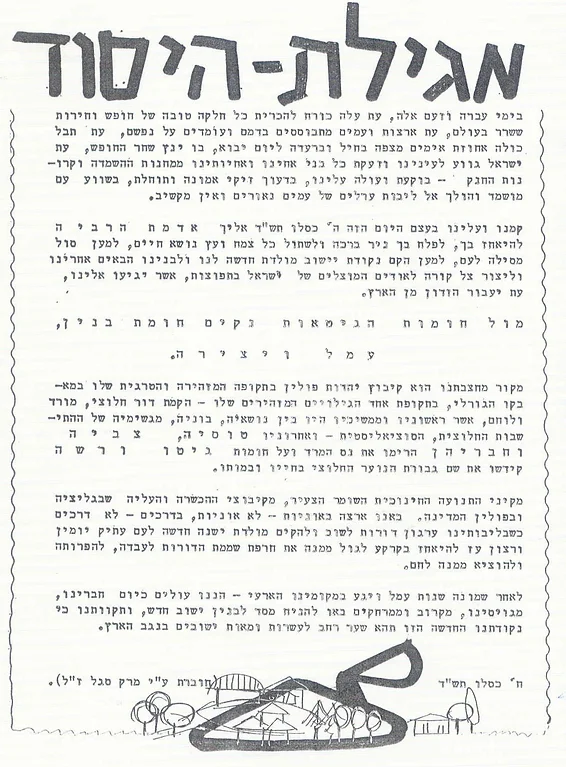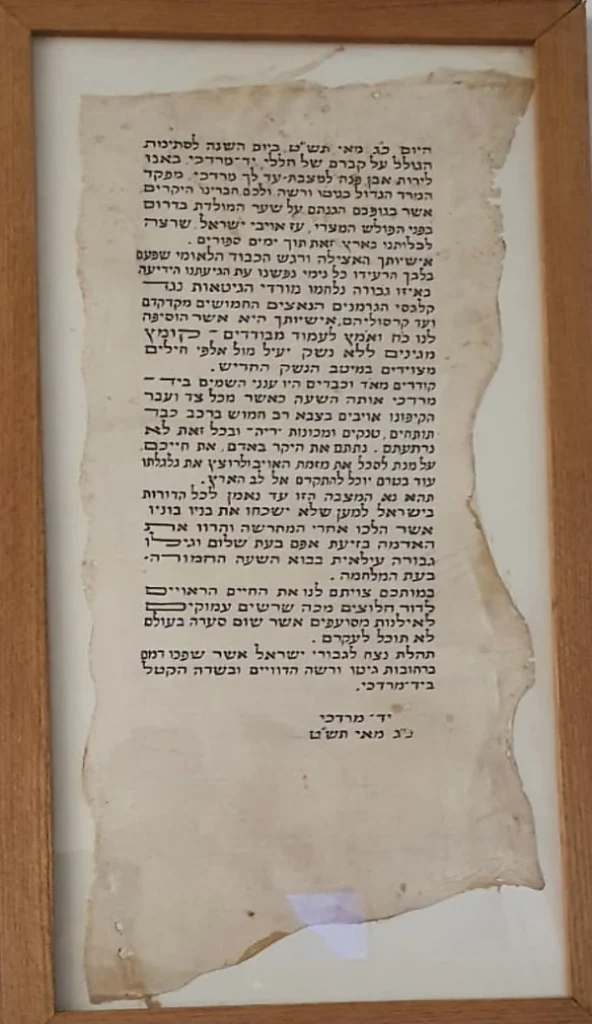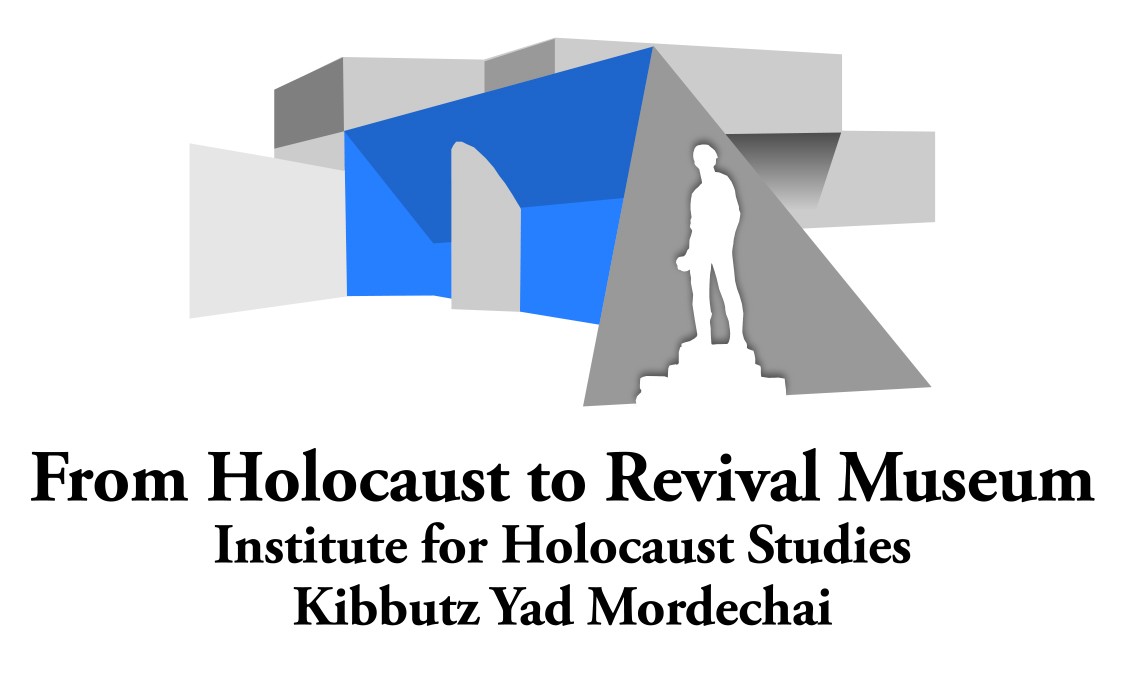Purpose and Vision
In the course of 2020, through an in-depth joint strategic process involving the museum staff, members of the kibbutz over the years, historians and intellectuals, and teachers and guides, the museum’s purpose and vision were updated, and its principles of operation were established. In this process, we were guided by the founding charters: that of the establishment of the kibbutz (December 1943) and that of the construction of the Mordechai Anielewicz memorial (May 1949).
The Purpose of the Museum
The Yad Mordechai Museum is a museum and an institution of Holocaust education that aims to teach visitors about the Holocaust and the acts of Jewish heroism that occurred during the period, and about the Jewish People’s revival in its own land. It tells a story of connection between past and present, with an eye toward the future.
The museum is squarely planted within the surrounding community of the Gaza Envelope and draws upon it in light of the vision of the founders and the legacy of Mordechai Anielewicz, the Warsaw Ghetto community, and the defenders of the kibbutz in 1948. It is a step along the path that connects the path of Holocaust and the path of revival; hand in hand with Israeli society, which guides its path at the junctions of education, democratic values, leadership, involvement, and justice, we will stop to contemplate and to learn at the stations of preservation of the historical memory of European Jewry from the beginning of the twentieth century, via the struggle for the establishment of the state of Israel, up to the present. We will look up and ahead, and we will work to shape an involved future generation that conducts pluralistic and bridging dialogue in Israeli society to strengthen the roots of Judaism and Zionism, and to create a better society to contend with the challenges of the time, while also adopting humane and Jewish values.
“To commemorate the past, to act in the present, and to influence the future.”
The Museum’s Vision
The Yad Mordechai Museum and Holocaust education institute will demarcate and implement a new and unique path that tells the story of the movement “from Holocaust to revival” in light of the legacy of Mordechai Anielewicz, the Warsaw Ghetto community, and the kibbutz’s defenders in 1948.
It will promote and strive to achieve a pluralistic Israeli society that encourages a discourse of bridging gaps, and it will work to instill humane and Jewish values for the future of Israeli society and the world.
In the course of 2020, through a deep joint strategic process conducted with the museum staff, members of the kibbutz over the generations, historians and intellectuals, and educators and youth counsellors, the museum’s purpose and vision were updated, and its operational values were specified. During this process, we were guided by the founding charters: that of the kibbutz (December 1943), and that of the construction of the monument for Mordechai Anielewicz (May 1949).
Founding Charter of the Kibbutz’s Establishment, December 1943


Founding Charter of the Anielewicz Memorial, May 1949

Fundamental Values
Human dignity and freedom
Maintaining rights, freedoms, and dignity for all people, regardless of race, origin, sex, religion, or class.
Pluralism and multiculturalism
Education toward love of one’s fellow man, tolerance, openness, and a facilitating and bridging discourse
Preservation of the memory of the Holocaust and the heroic acts of Jews during this period in a changing reality, and passing this memory down to future generations.
Cultivation and awareness of a social community identity
the creation of connections to society and to the community, and the implementation of activities to intensify these connections.




